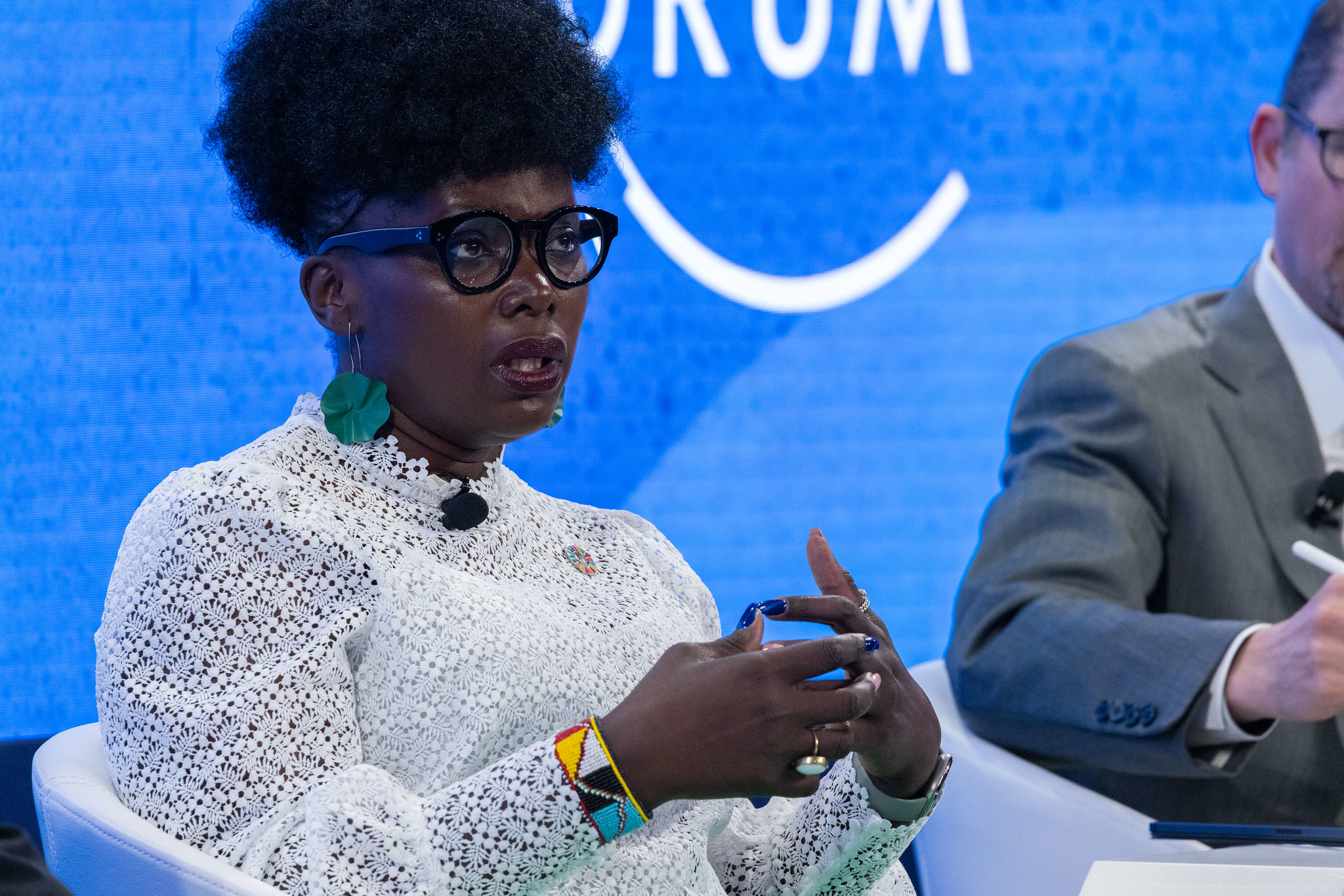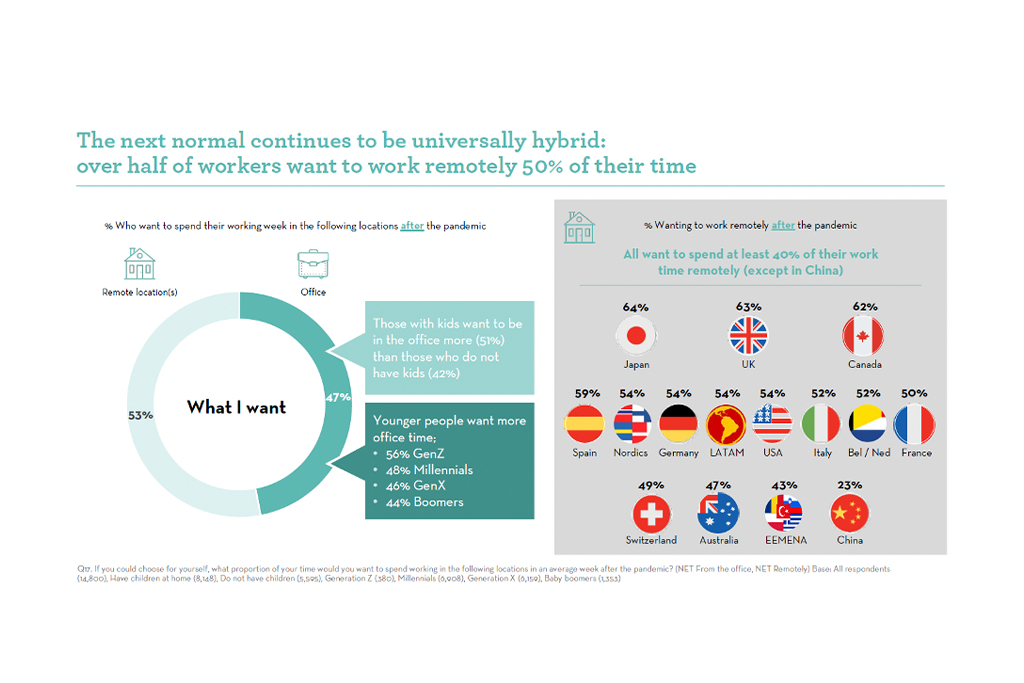It may be the first in-person Davos since before the pandemic, but the atmosphere in the Swiss mountains on Monday was far from celebratory. The war in Ukraine, inflation, rising interest rates, a food crisis and soaring energy costs have combined to put the global economy on rocky ground. As Kristalina Georgieva, Managing Director of the International Monetary Fund, put it: “2022 is going to be a tough year.”
She fell short of warning of a global recession, pointing out that the Fund’s prediction of 3.6% global growth this year was a long way from this definition, but warned that the consequences of the war in Ukraine were going “far and fast.” Additionally, the “tightening of financial conditions, dollar appreciation and China slowing down” would all take their toll. Economic uncertainty is likely to ripple through labour markets.
The first day of the 2022 conference saw experts and world leaders hold discussions on the challenges that lie ahead. “We are at the heart of a lot of things that are being discussed here,” said Coram Williams, CFO at The Adecco Group. “talent scarcity, skills, retraining, the way the labour force is evolving post-Covid… there’s so much for us as experts to influence and shape the way things develop."
Here are the five biggest work-related stories from today’s discussions.
1. President Zelensky says rebuilding Ukraine is an ‘economic way forward’
In a powerful video address, Ukrainian President Volodymyr Zelensky invited nations, cities and companies to take part in rebuilding his war-torn country. “The amount of work is enormous. We need to rebuild entire cities and industries.”
Zelenskyy said a communal approach meant that “rebuilding could be efficient and of high-quality… but also the largest in Europe since World War II. It will be the largest opportunity in Europe for an economic way forward.”

2. Making upskilling and reskilling accessible for all
Technology has opened the world of upskilling and reskilling to millions of people – but only if they have access to the internet. Millions in poorer countries or even refugee camps lack access to online platforms that could transform their opportunities in the global labour market. At the same time, there is a mismatch between the qualifications companies look for and those provided by online certificates.
Governments and companies can address this by improving WiFi provision (even public hotspots can enable learning), and coordinating job criteria with certifications. “[We need to] design things that are simple, that can be used offline and online, and make sure that they are understandable, dignified, and that we can help people, ultimately, get jobs,” said Lady Mariéme Jamme, Founder and Chief Executive Officer of iamtheCODE.
It’s important to focus on “protecting employability, not jobs” As Christophe Catoir, President of Adecco concluded on a future of work session today on the topic of skills. “ We used to ask people, what will your job be tomorrow, now we need to ask how relevant are your skills going to be tomorrow.”

3. How female leadership can change things for the better
While the pandemic has caused many women to drop out of the workforce, female leadership in the workplace has tangible benefits:
-
“We promoted men based on their potential, and women based on their performance,” said Stephanie Trautman, Chief Growth Officer at Wipro Limited. Her company found engaging this untapped potential boosted business outcomes.
-
Encouraging female leadership likely means rethinking existing hiring and promotion practices to involve new criteria which are more merit-based and diverse.
-
Companies with female leadership tend to be better at letting employees be their full self at work. This means incorporating practices such as flex work and childcare options, which benefit all workers, not just women.
4. How essential workers are advocating for better conditions
The pandemic has redefined essential work. It’s no longer just doctors and emergency workers who are considered essential but also the retail workers, delivery drivers, cleaners and more who put their own lives at risk to work through the health crisis.
Around the world, these workers are now collectively organising and even unionising to improve work conditions. And they may be successful. “There will be pay rises across the board in Western societies, that's inevitable,” said Ireland’s Deputy Prime Minister Leo Varadkar. Without improvements, staff shortages in care work, hospitality, tourism and retail are likely. This leaves two solutions, Varadkar said: “One, one is to automate more, and the other is to pay more, pay better and make sure people have good secure jobs and a proper career path.”

5. Prioritising soft skills in the hybrid workplace
The workplaces of the future are likely to be based on skills, rather than qualifications. This is already in evidence in the tech world where applicants probably won’t get hired if they can’t pass technical tests that reveal their ability to code, for example. However, soft skills are arguably more important in the workplace, and much harder to learn online.
This has left some young workers – who have little experience of in-person work – at a loss. “The youngest generation actually wants the remote jobs the least,” said Allen Blue, Vice President of Product Management at LinkedIn. “The reason they give us is that they need to be in the office to learn from other people. The millennials who you hired two years ago have not acquired any soft skills yet, so make sure you bring them in and help them develop them.” In fact, Adecco Group’s research in 2021 showed that Gen Z wanted to be in the office at least 56% of the time, versus Boomers (44% of the time), Gen X (46%) and millennials (48%).
Christophe Catoir, President of Adecco pointed out that transversal skills, soft skills such as social, emotional intelligence, resilience and curiosity are necessary in a very volatile world of work that requires continuous learning. Vocational education and apprenticeships are a way forward.




